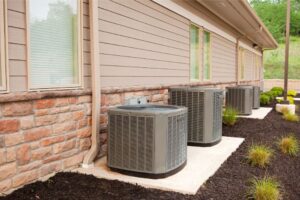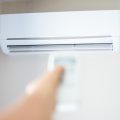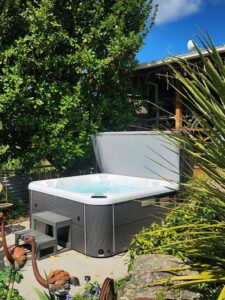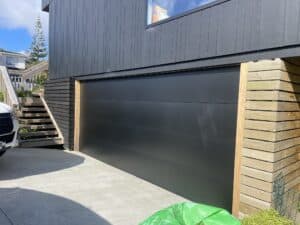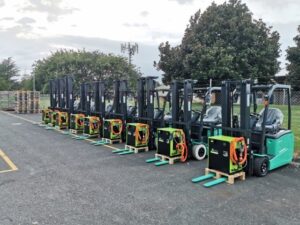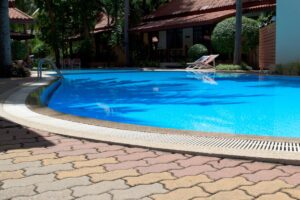Dunedin, New Zealand, is renowned for its temperate climate, characterised by mild summers and cool winters. Traditionally, the city’s inhabitants have relied on layers of clothing and the natural ventilation of their homes to combat the occasional chill.
However, in recent years, a subtle shift has occurred. As the world grapples with climate change and societal norms evolve, the once-unusual concept of air conditioning in Dunedin is gaining traction.
While Dunedin’s climate doesn’t typically demand the constant cooling provided by air conditioning units found in hotter regions, a confluence of factors is driving a growing interest in this technology.
The Dunedin Climate and Air Conditioning Needs
Dunedin experiences a maritime climate influenced by the Southern Ocean. Summers tend to be mild, with average temperatures hovering around the mid-teens Celsius.
Winters are characterised by cool, wet weather. While these conditions are generally pleasant, there are periods when the temperature can soar, particularly during heatwaves.
These events, although infrequent, can create uncomfortable conditions, especially for the elderly, young children, and those with health conditions.
Moreover, the city’s humidity levels, while not as oppressive as some other parts of the country, can contribute to a feeling of discomfort during warm spells.
This combination of factors means that while air conditioning may not be a necessity for most of the year, it can offer a welcome respite during those hotter days and nights.
Compared to other regions in New Zealand, Dunedin’s air conditioning needs are undoubtedly lower. Cities like Auckland and Christchurch, which experience more intense and prolonged heat waves, have a higher demand for cooling systems.
However, the trend towards warmer temperatures and changing lifestyles means that Dunedin is not immune to this growing market.
The Rise of Air Conditioning in Dunedin
Several factors are contributing to the increasing popularity of air conditioning in Dunedin. Firstly, there has been a noticeable shift in lifestyle.
People are spending more time indoors, whether working from home, engaging in leisure activities, or simply seeking refuge from the elements.
This increased indoor time can make even mild temperature fluctuations more noticeable.
Secondly, the frequency and intensity of heatwaves appear to be on the rise. Climate change models predict that New Zealand will experience more extreme weather events, including heatwaves.
As these events become more common, the appeal of air conditioning as a means of protection will undoubtedly grow.
Technological advancements in air conditioning have also played a role. Modern units are significantly more energy-efficient than their predecessors, making them a more attractive option for environmentally conscious consumers.
Additionally, the range of options available has expanded, with smaller, more affordable units becoming increasingly popular.
As air conditioning becomes more commonplace, it is having an economic impact on Dunedin. The installation of air conditioning systems creates jobs for tradespeople, while the ongoing maintenance and servicing of these units supports local businesses.
Furthermore, the increased energy consumption associated with air conditioning can benefit electricity providers.
Types of Air Conditioning Systems Suitable for Dunedin
The choice of air conditioning system depends on a variety of factors, including the size of the space to be cooled, budget, and personal preferences.
The three main types of air conditioning systems available are split systems, ducted systems, and portable units.
Split systems are the most common type of air conditioning used in residential homes. They consist of an outdoor unit and an indoor unit connected by refrigerant lines. Ducted systems are more suitable for larger homes and provide even cooling throughout the entire house.
Portable units offer a flexible cooling solution but are generally less efficient than split or ducted systems.
When selecting an air conditioning system, it is essential to consider factors such as the size of the room or area to be cooled, the system’s energy efficiency rating, and the overall cost of installation and operation.
A qualified air conditioning specialist can help homeowners choose the most appropriate system for their needs.
Energy Efficiency and Environmental Impact
While air conditioning can provide comfort and improved indoor air quality, it is essential to consider the environmental impact of these systems.
The operation of air conditioning units contributes to greenhouse gas emissions, which contribute to climate change. However, significant advancements in technology have led to the development of highly energy-efficient air conditioning systems.
To minimise the environmental impact, it is crucial to choose energy-efficient models with high Energy Star ratings. Additionally, regular maintenance can help ensure optimal performance and reduce energy consumption.
There are also steps homeowners can take to reduce their reliance on air conditioning. Proper insulation, shading windows from direct sunlight, and utilising fans can help cool homes naturally.
Furthermore, exploring renewable energy options, such as solar power, can offset the energy consumption of air conditioning systems.
Cost Considerations
The cost of installing and operating an air conditioning system is a significant factor for many homeowners. The initial outlay for purchasing and installing a unit can vary depending on the size and type of system chosen.
Ongoing costs include electricity consumption, maintenance, and potential repairs.
To help offset the cost of air conditioning, some governments offer incentives or rebates for purchasing energy-efficient models.
It is essential to research available programs to maximise savings.
When considering the long-term costs, it is important to weigh the benefits of improved comfort against the financial investment. For some homeowners, the ability to enjoy a comfortable indoor environment during hot weather may outweigh the additional expenses.
Maintenance and Care
Proper maintenance is essential for ensuring the optimal performance and longevity of an air conditioning system. Regular cleaning and servicing can help prevent breakdowns, improve energy efficiency, and extend the life of the unit.
Common maintenance tasks include changing air filters regularly, cleaning evaporator coils, and checking refrigerant levels. It is recommended to have a professional technician inspect the system annually.
By following these maintenance guidelines, homeowners can help maximise the benefits of their air conditioning system while minimising the risk of costly repairs.
It’s Time To Think About Upgrading Your Dunedin Home
While Dunedin’s climate is generally mild, the increasing frequency of heat waves and changing lifestyles have led to a growing demand for air conditioning. While it is not a necessity for everyone, air conditioning can provide a welcome respite during hot weather.
When considering air conditioning, it is essential to carefully evaluate the specific needs of your household, the available options, and the potential environmental and financial implications.
By choosing energy-efficient models and practising good maintenance habits, homeowners can enjoy the benefits of air conditioning while minimising its impact on the environment.
As climate change continues to influence weather patterns, the role of air conditioning in Dunedin is likely to evolve. Future generations may view air conditioning as a standard feature in homes and businesses, like heating systems.

